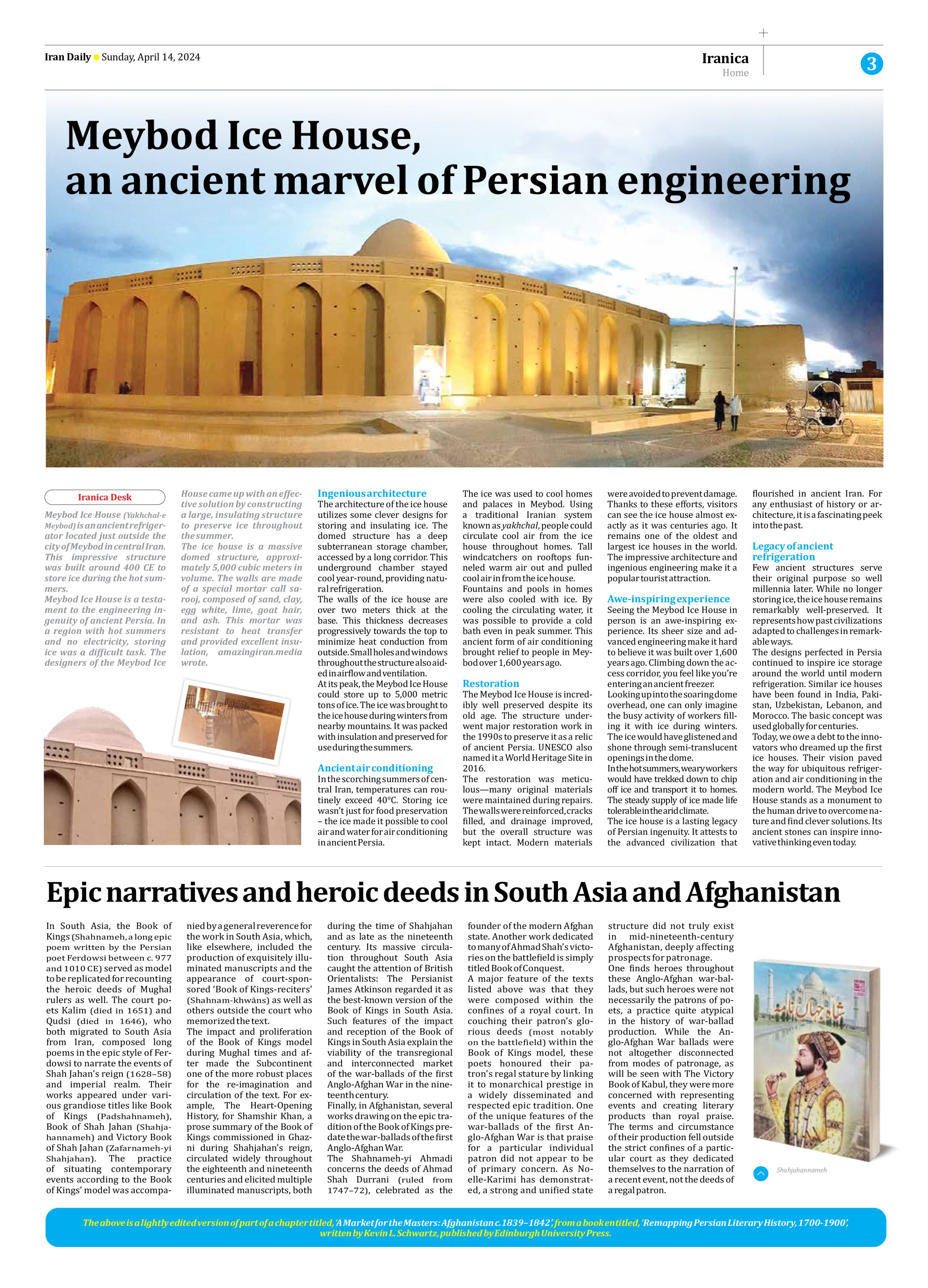
Copy in clipboard...
Epic narratives and heroic deeds in South Asia and Afghanistan
The impact and proliferation of the Book of Kings model during Mughal times and after made the Subcontinent one of the more robust places for the re-imagination and circulation of the text. For example, The Heart-Opening History, for Shamshir Khan, a prose summary of the Book of Kings commissioned in Ghazni during Shahjahan’s reign, circulated widely throughout the eighteenth and nineteenth centuries and elicited multiple illuminated manuscripts, both during the time of Shahjahan and as late as the nineteenth century. Its massive circulation throughout South Asia caught the attention of British Orientalists: The Persianist James Atkinson regarded it as the best-known version of the Book of Kings in South Asia. Such features of the impact and reception of the Book of Kings in South Asia explain the viability of the transregional and interconnected market of the war-ballads of the first Anglo-Afghan War in the nineteenth century.
Finally, in Afghanistan, several works drawing on the epic tradition of the Book of Kings pre-date the war-ballads of the first Anglo-Afghan War.
The Shahnameh-yi Ahmadi concerns the deeds of Ahmad Shah Durrani (ruled from 1747–72), celebrated as the founder of the modern Afghan state. Another work dedicated to many of Ahmad Shah’s victories on the battlefield is simply titled Book of Conquest.
A major feature of the texts listed above was that they were composed within the confines of a royal court. In couching their patron’s glorious deeds (most notably on the battlefield) within the Book of Kings model, these poets honoured their patron’s regal stature by linking it to monarchical prestige in a widely disseminated and respected epic tradition. One of the unique features of the war-ballads of the first Anglo-Afghan War is that praise for a particular individual patron did not appear to be of primary concern. As Noelle-Karimi has demonstrated, a strong and unified state structure did not truly exist in mid-nineteenth-century Afghanistan, deeply affecting prospects for patronage.
One finds heroes throughout these Anglo-Afghan war-ballads, but such heroes were not necessarily the patrons of poets, a practice quite atypical in the history of war-ballad production. While the Anglo-Afghan War ballads were not altogether disconnected from modes of patronage, as will be seen with The Victory Book of Kabul, they were more concerned with representing events and creating literary products than royal praise. The terms and circumstance of their production fell outside the strict confines of a particular court as they dedicated themselves to the narration of a recent event, not the deeds of a regal patron.







